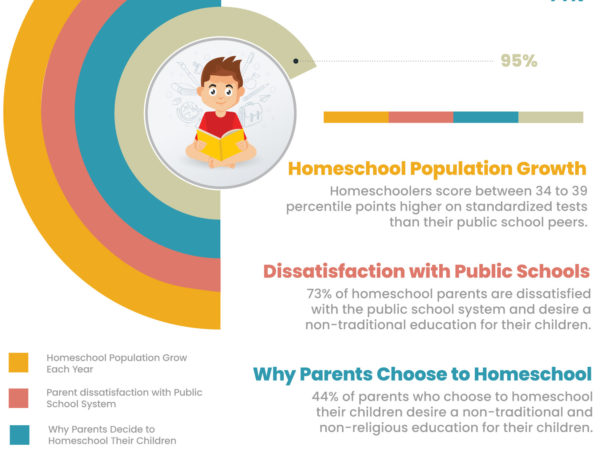So far, we have covered a few of the many basics for what you should consider BEFORE you decide to homeschool. Let’s do a quick refresh of some of the Do’s and Don’ts of homeschooling discussed up to this point.
Homeschool Do’s
1. Make the Decision to School Your Child at Home
If and when your child is outstripping and outpacing their fellow classmates in a school setting. Or on the opposite end of the spectrum, if your child has learning limitations or impediments that require a more one-on-one environment. Being able to teach your child at home is definitely an opportunity for you to meet them at their pace of study which is obviously accelerated or needing special allowances compared to their classmates. Homeschooling will be a good fit if you want to give them the environment necessary to outshine their peers.
2. Legally Register Yourself as a Homeschooling Household
Go through the proper channels and get yourself set up to follow the correct and lawful procedures. Unfortunately, the first online search result that populates when you Google search how to register as a homeschooler, is the HSLDA site. I will cover my grievances and issues with this organization in an upcoming post, but suffice it to say, the map that shows the US and which states have high, little, or no regulation is startling. To see how few states have even moderate regulation.
3. Create Structure for Children
Children need it to thrive; they are not going to create it for themselves. If you are homeschooling your child you are technically running your own school so you have to act like it. Don’t just stop at acquiring the latest and greatest curriculum; you need to know it backwards and forwards and then TEACH it.
4. Be Aware of Your Limitations
Even though you went through school yourself, it’s been a long time and those subjects are actually not as easy to teach as you may think. Not every parent is fully equipped to teach their child every single subject that they are studying.
5. Have a Backup Plan
There are lots of small homeschool communities you can and need to get involved with. You need to be involved in some kind of community of peers where you can go for support for you and your child. There are some programs within different communities that are put together by parents who tackle teaching classes that some parents might have difficulty teaching on their own. This provides the opportunity for those with specialties or serious interests in topics like Art, Math and Science to share their expertise and provide a better learning environment for certain areas of study. This is especially helpful in certain situations where you find that your child is struggling in learning something or is outstripping your teaching capabilities. Even when you feel like you’ve hit a brick wall, have patience, remember your child sees your face every moment of almost every day and sometimes your communication is going to be off. There will be frustration. You have to know when to ask for help from others. Have a good system set up within your homeschooling community where you have excursions set up and learning set up with other families to where there is a shared learning experience. Do field trips, set up small classrooms where parents can teach a different subject that they’re passionate about. Maybe this parent even has a degree in a specific area of learning, so definitely capitalize upon this.
6. Be a Trendsetter
If there aren’t any groups in your area already established, start a group for all homeschoolers in your area to meet together. Organize field trips, have social events, sports teams, etc. Socialization is so important for humans and it is the most common area of deficiency for homeschool children.Create a community that encourages all to socially engage with others and their peers especially.
7. Measure Results
It is important to realize that you need to be accountable to someone other than yourself. If you are doing your job correctly as a homeschool parent, this should not be an intimidating idea for you. You must assess results and progress. Your child needs to do yearly or regular standardized testing of some kind to show your government and state that you are following the laws, staying up-to-date and teaching your child what they need to learn.
Homeschool Don’ts
8. View Homeschooling as Your Personal Right
Let’s just clear the air here: getting a good education is your child’s right not a privilege. If you choose to remove them from the school system then you are taking on a huge amount of responsibility and to do this you need to be able to prove yourself not only worthy, but capable of the role of educator. This is a precious privilege for you as a parent to be able to make this decision for your child, so please don’t forget that.
9. Make Your Child be Responsible for Their Learning
I’m sure your child is very smart, but you are the catalyst for school work taking place. Undeniably, kids want to play, kids want to mess around and have fun, and that usually entails getting out of or playing hooky from school and responsibilities. Even if your child does love academia and seems driven, they should never be responsible for setting their own goals and for teaching themselves any subject ever.
10. Overextend Yourself
Just because you feel like you have the right to homeschool, and even though I’ve already said this is a privilege not necessarily a right, you need to make sure that you have systems in place and good resources to reach out for and to when you’re struggling. Just because you think you could homeschool one child does not mean that you are qualified to homeschool 3 to 6 or more children at a time all alone. To me this idea is one that will always bug me. Schooling one child isn’t necessarily going to be difficult, but remember that a teacher in a classroom is teaching a certain grade level and the same course to a group of students. Just because they have 7 to 15 students in their class, doesn’t mean that you are capable of juggling more than one or two students and grades on your own. When there is variation between your childrens’ age ranges and grades, this means there are also different levels of learning and needs to meet. You cannot provide every single learning need for more than two children at a time feasibly and still do all you need to do.
11. Isolate from the World
You shouldn’t homeschool if you are merely wanting to keep your child away from secular, non-religious influence or things that you frankly don’t agree with. It’s vital for your child to be raised in an environment where they learn to accept those who are different from them. They should come up against different ideas, and be capable of holding true to their own values while still learning that there are other opinions and other ways of looking at things. If you feel any kind of confidence in your ideology and your standpoint, your child is not going to need to be kept away from the outside world to maintain these values. I grew up in a very religious household. I do not practice organized religion at this point in my life but I know scripture in and out. Let me just use Daniel, Shadrach, Meshach, and Abednego as an example for you from the book of Daniel. They were taken from their homes, they were taken from everything that they knew and they were put into a place where if they had chosen to they could have assimilated and practiced the values of those secular people around them. They could’ve eaten the foods that were against their religion, they could’ve done whatever they wanted to do. Instead they held true to how they were raised, and were able to differentiate between secular views and their own values. You’ve got to trust your child to take the things that you have taught them and to hold fast to those things. You will never know just how well your child understands what you have taught them unless they have to come up against some kind of test or temptations that they will either fall prey to and learn lessons from or stand up and hold fast to their values.



1 Comment
Maire Walchli
May 22, 2020 at 2:42 pmThis article is great! If it help, you can teach
your child to read, this video reveals how any child aged 2-9
can quickly learn to read at home.